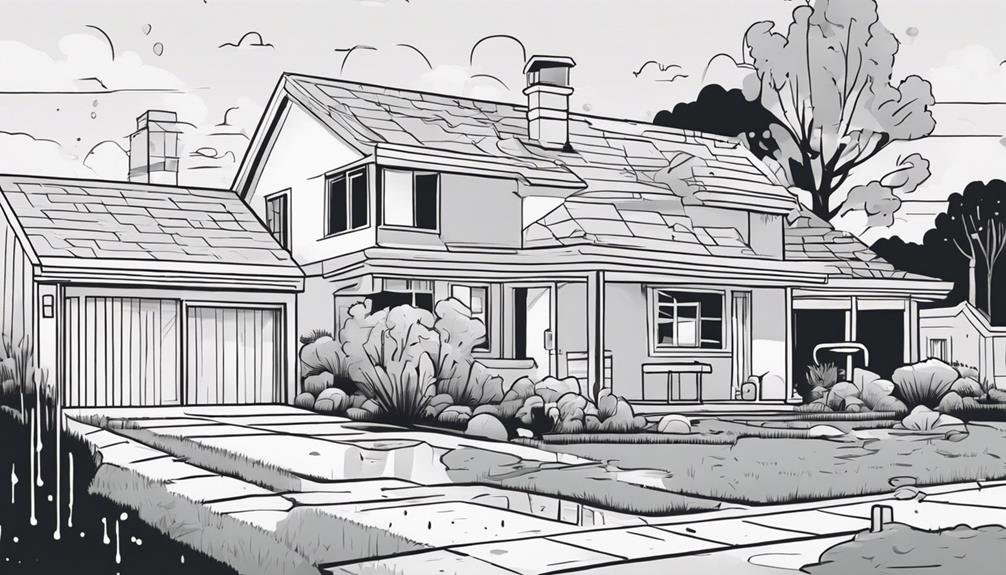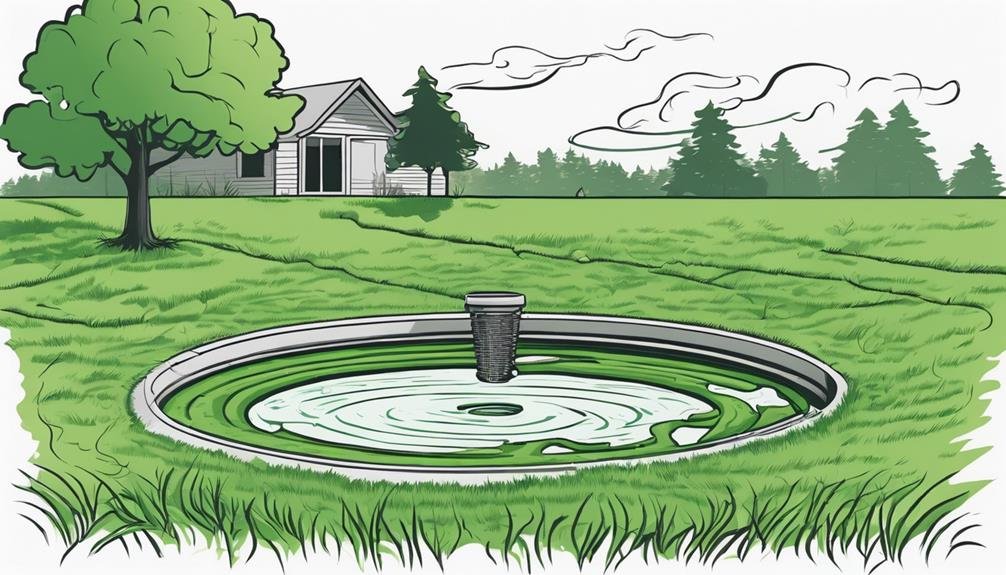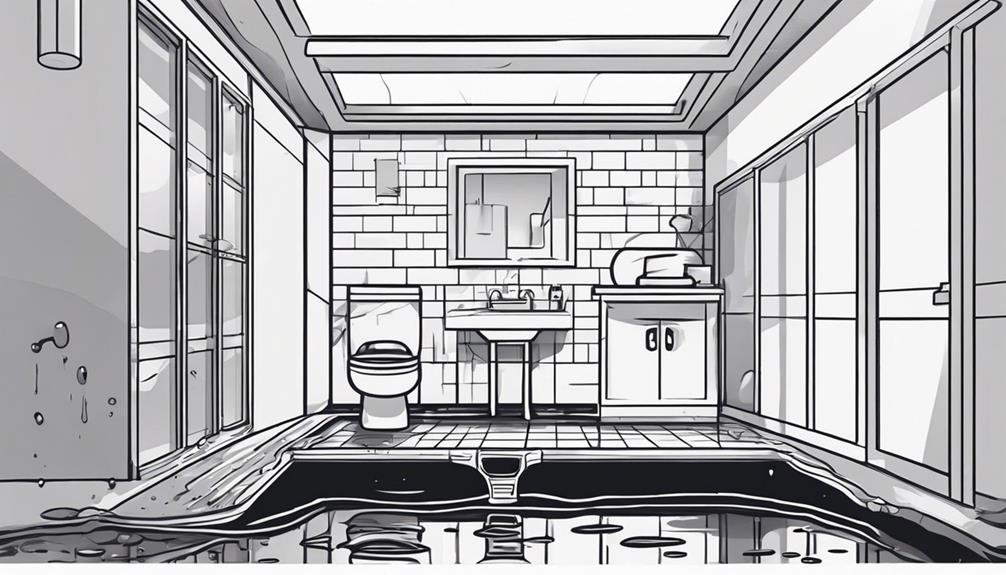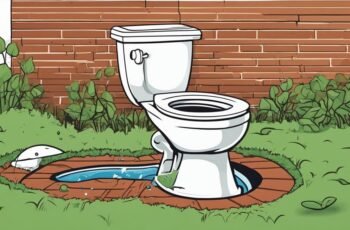You might think that the foul odors lingering in your home are just a quirky new air freshener, but here's a friendly heads-up: they could be signaling something far less pleasant.
Slow drainage in your sinks and shower might not just be a nuisance but a subtle clue to a larger issue brewing underground.
And that lush green patch in your yard might not be a lucky clover but a sign of trouble.
Curious to know more about these warning signs that your septic tank might be crying out for help?
Key Takeaways
- Foul odors and slow drainage signal septic tank backup.
- Lush green grass above drainfield indicates drainage problems.
- Gurgling sounds and sewage backup are warning signs of septic issues.
- Immediate action and professional help are crucial to prevent damage and health risks.
Foul Odors Inside or Outside

If you detect foul odors inside or outside your home, it could be a warning sign of septic tank backup. Proper septic tank maintenance is crucial to prevent such issues. Regularly scheduled inspections and pump-outs help keep your septic system running smoothly, reducing the chances of backups that cause these unpleasant odors.
To tackle the odors, consider implementing effective odor control techniques. One popular method is using specialized additives designed to break down waste and minimize odor emissions. These additives can be introduced into your septic system to promote healthy bacterial growth and enhance decomposition processes, reducing foul smells.
Moreover, ensuring proper ventilation in your septic system can also help in controlling odors. Adequate airflow helps prevent the buildup of gases that contribute to unpleasant smells. By incorporating these septic tank maintenance practices and odor control techniques, you can effectively manage and eliminate foul odors associated with septic tank backups.
Slow Drainage in Multiple Fixtures
Detecting slow drainage in multiple fixtures can indicate a potential septic tank backup, signaling the need for immediate attention to prevent further issues. When you notice water taking longer to drain in sinks, showers, and toilets throughout your home, it could be a sign of a looming problem with your septic system. In such cases, it's crucial to address the issue promptly to avoid more severe consequences.
One option is to schedule a professional inspection to accurately diagnose the cause of the slow drainage. A trained technician can assess the state of your septic tank and recommend the necessary steps to resolve the backup efficiently.
However, if you prefer a hands-on approach, you can attempt some basic DIY maintenance techniques to alleviate the slow drainage temporarily. These may include using a plunger or a drain snake to clear minor blockages.
Lush Green Grass Over Drainfield

Lush green grass over your drainfield can be a clear indicator of potential issues with your septic system's drainage. When the grass above your drainfield appears excessively vibrant and lush compared to the rest of your yard, it could signal problems such as soil saturation or root intrusion.
Soil saturation occurs when the drainfield is unable to properly absorb the wastewater from your septic system, leading to an overflow of water that saturates the soil. This excess moisture can stimulate grass growth, resulting in a patch of lush green grass above the affected area.
Root intrusion is another concern that can arise when the roots of nearby trees or plants infiltrate the drainfield pipes, causing blockages and hindering proper drainage. As a result, the grass above these compromised pipes may appear healthier due to the increased moisture and nutrients present in the soil.
If you notice unusually lush grass over your drainfield, it's essential to have your septic system inspected promptly to address any underlying issues before they escalate into more significant problems.
Gurgling Sounds From Drains
Noticing gurgling sounds coming from your drains can be an early indication of potential septic system issues that require attention. These unusual noises often signal underlying problems that, if left unaddressed, can lead to more significant and costly issues down the line.
Here are some key points to consider:
- Regular Plumbing Maintenance: Scheduling routine inspections and maintenance for your plumbing system can help prevent blockages and other issues that may cause gurgling sounds.
- Professional Drain Cleaning: Periodic drain cleaning by a professional can help remove buildup and debris that could be causing the gurgling noises.
- Check for Clogs: Inspect your drains for any visible clogs that might be obstructing the flow of water and causing the gurgling sounds.
- Address Leaks Promptly: Leaks in your plumbing system can lead to air being sucked into the pipes, resulting in gurgling sounds. Address any leaks as soon as they're detected to prevent further complications.
Sewage Backup in House

If you experience sewage backup in your house, immediate action is crucial to prevent extensive damage and health hazards. When faced with sewage backup, the first step is to contact an emergency plumber. They've the expertise and equipment to address the issue promptly. Sewage backup in your house can be caused by various factors, with drain line issues being a common culprit. These problems can range from clogs to structural damage, leading to sewage backing up into your home.
When sewage backup occurs, it's essential to avoid using any water fixtures in your house to prevent further contamination. Open windows for ventilation and keep children and pets away from the affected area. The smell and sight of sewage backup can be overwhelming, but refrain from attempting to clean it up yourself as it can be hazardous to your health. The emergency plumber will assess the situation, identify the root cause, and take the necessary steps to resolve the issue efficiently.
Conclusion
If you notice foul odors, slow drainage, lush green grass, gurgling sounds, or sewage backup, these are clear warning signs of septic tank backup. Ignoring these signs can lead to costly repairs and potential health hazards.
By staying vigilant and addressing these issues promptly, you can prevent a major septic tank disaster. Remember, a little maintenance now can save you a lot of trouble later on.
Stay informed, stay proactive, and keep your septic system running smoothly.

